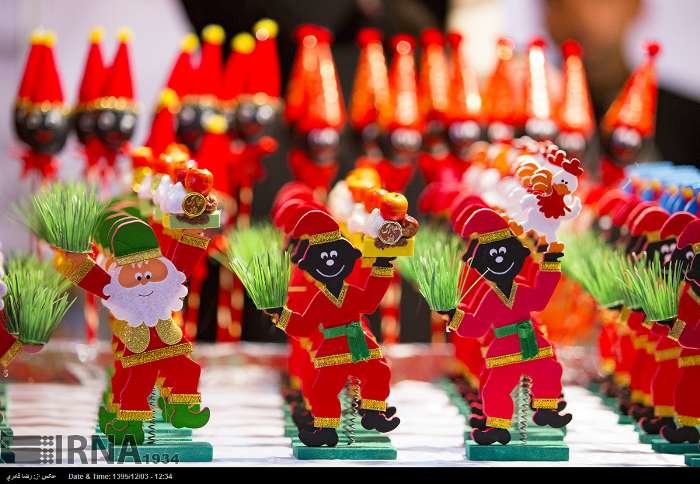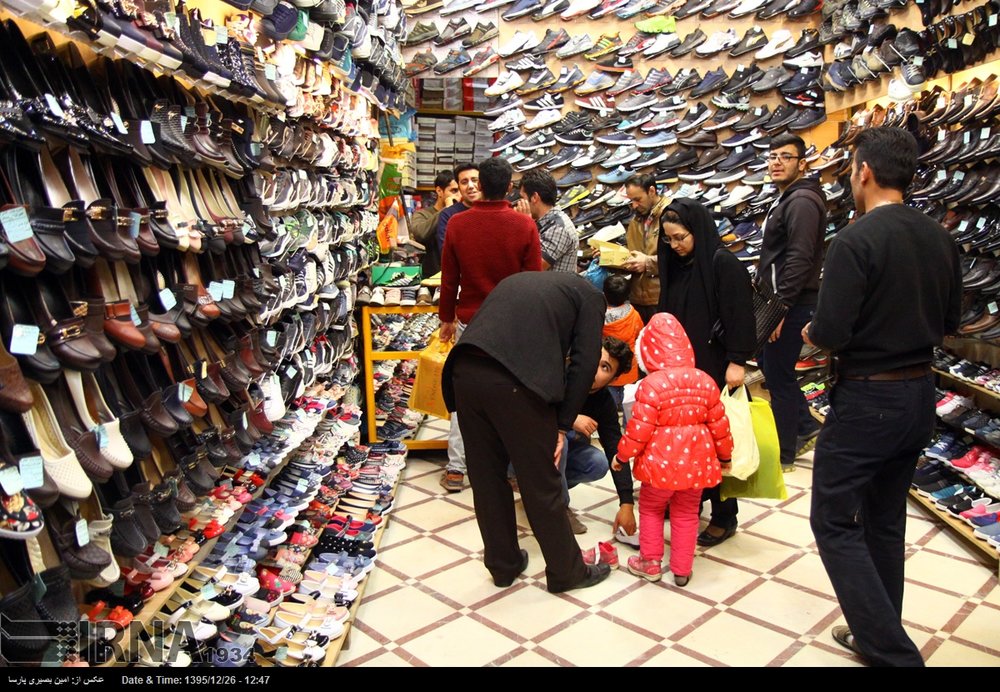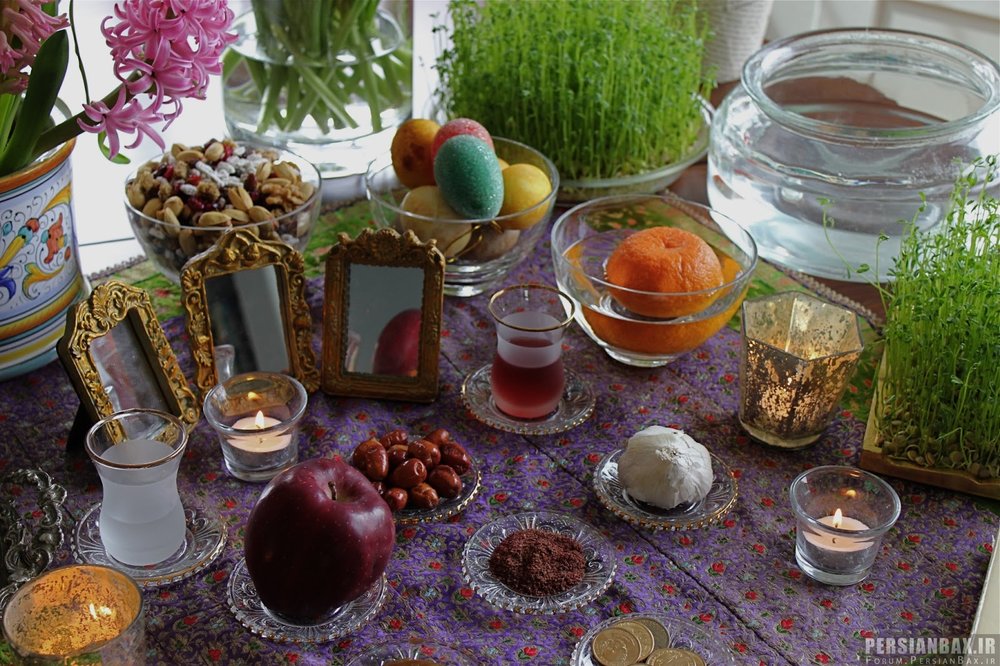Time to welcome New Year in Persian style

TEHRAN – Esfand, the final month in the Iranian calendar year, is the month of hustle and bustle for all Iranians who are becoming prepared for the New Year celebration, Noruz.
However, the fresh air and the blossoms on the tree spur everyone on welcoming spring with traditional rites, which were performed over centuries by our ancestors.
Spring cleaning, providing new costume and cooking sweats and confectionaries, preparing items for Haft Seen, an arrangement of seven symbolic items traditionally displayed at Noruz, are some of rituals done by Iranians since long time ago.

House cleaning or khaneh tekani:
A top-to-bottom cleaning is one of the traditions performed by most of Iranian across the country. Khaneh tekani, literally “shaking house”, is a spring cleaning tradition performed by all family members.
It includes cleaning of items, which were not cleaned during the rest of the year, such as silverware, carpets and furniture, as well as clearing the garden of winter debris.
Curtains and carpets are washed, all dust and debris are shaken and swept off, and all surfaces are cleaned. The stains on glass windows are also removed during house cleaning.
Houses might also get a fresh coat of paint. Some people burn sandalwood or an herb called espand to freshen the air. Many people also buy new housewares and replace them with old ones before Noruz. Buying plants and flower pot is another tradition performed by some people in Iran.
This way, people invite spring, the renewal of nature, to every corner of their houses. In fact, khaneh tekani is not only physically cleaning your house, it's also about getting rid of the past and of evil spirits.

New clothing for New Year:
Buying new attire for New Year is another tradition performed by Iranians. It is very serious part of Noruz for children.
Noruz is known by children through new costume and also eidi, special gift given on the occasion of Noruz by elder member of families.
According to tradition, children wears new dress from top to toe on the first day of Noruz in front of Haft Seen.
Elder members of family also buy some clothing pieces to celebrate New Year.
In past, women sew the dress for all family members and they only bought shoes for Noruz. However today many families buy all clothing items for the New Year.

Preparing Haft Seen:
Setting a “haft-seen” table for Noruz, the Iranian New Year, is a custom which is being observed by almost all Iranians worldwide.
There are seven items on the table which start with ‘S’ in Persian language in addition to gold fish, colorful eggs, Quran, candles, and mirror.
The seven items include sabzeh (wheat, barley, mung bean or lentil sprouts growing in a dish), samanu (sweet pudding made from wheat germ), senjed (wild olive fruit), seer (garlic), seeb (apple), sekkeh (coin) and serkeh (vinegar).
Growing sabzeh for Haft Seen is a task begin in Esfand. Soak grain seeds in water for 24 to 48 hours. Change the water 1-3 times a day. Drain seeds, then spread them on a paper towel. The bundle should be moist to the touch. If not, sprinkle with water.
On day 5 it’s time to unwrap the bundle. By this time, you will notice that your seeds are sprouting in earnest.
Layer the sprouting seeds inside your container on top of the paper towel. Spread seeds evenly, so as to avoid bald spots! By day 7 your seeds should have officially sprouted.
However, during recent years, many environmentalists suggest to grow citrus seeds instead of grains.
In past, Samanu, a sweet pudding made from wheat sprouts, was also cooked by females during a ceremony at their homes.
They made samanu in a big bronze pot on a handmade fireplace and stirred it with a very big ladle.
The water used for cooking samanu was gathered from rains pour during Nisan, the first month on Assyrian calendar, which is concurrent with April for making samanu. In Islam, the rain water collected during the spring month of Nisan (April) is advised for its benefits.
Nowadays, most of people buy samanu and even sabzeh from market.
Esfand still is a great time to prepare for New Year. Although many items are not time-consuming these days, it is a time for resolutions, which may bring happier days in next year.
SB/MQ/MG
Leave a Comment